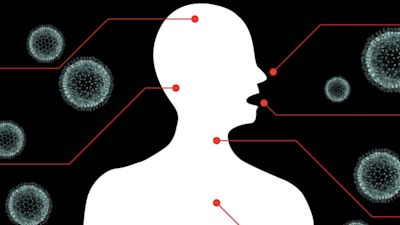Longer-term symptoms of Covid-19 revealed by Leeds researchers

Researchers from the University of Leeds and Leeds Teaching Hospitals NHS Trust have identified a pattern of longer-term symptoms likely to be experienced by people who were hospitalised with the COVID-19 infection.
They include:
Fatigue
Breathlessness
Psychological distress - including problems with concentration and memory
A general decline in quality of life
According to the research, some patients, particularly those who had been in intensive care, had symptoms associated with cases of PTSD (post-traumatic stress disorder).
Our reporter David Hirst spoke to some people still struggling with the longer term affects of the virus:
The findings provide the first detailed insight into problems facing patients recovering from COVID-19.
Dr Manoj Sivan, Associate Clinical Professor at the University of Leeds and a Consultant in Rehabilitation Medicine at Leeds General Infirmary, supervised the research project.
He said:
How was the research carried out?
The research team followed 100 people recovering from COVID-19 in the community, four-to-eight weeks after discharge from hospital.
The COVID-19 survivors were divided into two groups: those who had become critically ill and needed intensive care - 32 people were in this category; and those who were treated on a ward without needing intensive care - 68 people were in this category.
Patients were contacted by a member of the hospital's rehabilitation team and asked a series of questions about their recovery and symptoms they were still experiencing.
Breakdown of research findings
The most prevalent symptom was fatigue. More than 60 percent of people who had been treated on a ward reported fatigue, and one-third of them described it as moderate or severe.
The second most common symptom was breathlessness. People in both groups said they had feelings of breathlessness which had not existed before they contracted COVID-19.
The third most prevalent symptoms were neuropsychological. The research survey found that almost one quarter of the people who had been on a ward and just under a half of the people who had been in intensive care had some of the symptoms of PTSD.
The researchers say the rehabilitation needs of patients who did not require hospital care need to be further investigated and they are working on understanding this in future research.